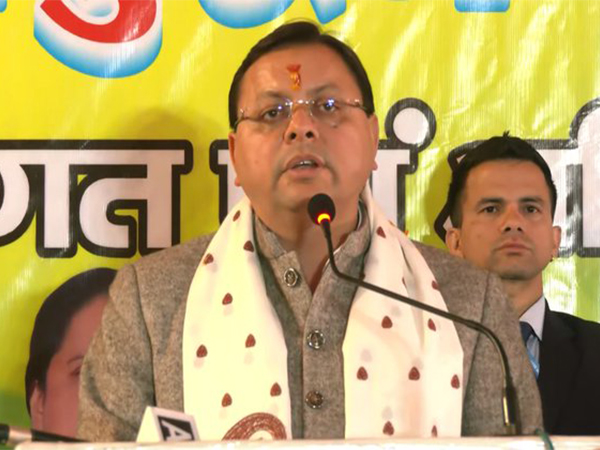Dehradun (Uttarakhand)[India], January 24 (ANI): The Uttarakhand government has implemented the Uttarakhand Uniform Civil Code Act, 2024, establishing a streamlined framework for the creation and cancellation of wills and supplementary documents, known as codicils, under testamentary succession.
This comprehensive legislation aims to simplify the process for citizens across the state, with special provisions tailored for armed forces personnel, according to an official statement.
The Uttarakhand Uniform Civil Code Act, 2024, implemented by the Uttarakhand government provides a well-organised framework for the creation and cancellation of wills and supplementary documents (codicil/testamentary succession). Various aspects related to the will have been discussed in detail in this Act.
Given the state’s tradition of making outstanding contributions to the armed forces, the Act gives special importance to the Privileged Will.
According to this, soldiers, airmen or marines on active service or deployment can prepare a will under simple and flexible rules–whether it is handwritten, verbally dictated, or presented verbatim before witnesses. The purpose of this streamlined process is to ensure that even those deployed in difficult and high-risk situations can effectively register their property wishes.
For example, if a soldier writes a will in his hand, the formalities of signature or attestation are not required, provided it is clear that the document was prepared in his own words.
Similarly, if a soldier or airman verbally declares a will in front of two witnesses, it can also be considered a privileged will, although it will automatically become invalid after one month if the person is still alive and his special service conditions (active service, etc.) have ended, said an official statement.
It is also stated that someone else may draft a will as directed by the soldier, and the soldier accepts it verbally or in action; in such a situation too, it will be considered a valid privileged will. If the soldier had given written instructions to write a Will but died before it could be finalised, those instructions would still be treated as a Will, provided it is proven that they were his wishes.
Similarly, if oral instructions were given in front of two witnesses and the witnesses were able to record them in writing during the soldier’s lifetime, but the document could not be formally finalised, such instructions could still be given the status of a Will. Importantly, a Privileged Will can also be revoked or amended in the future by the soldier by making a new Privileged Will (or Ordinary Will in some circumstances) that reflects the soldier’s latest wishes. This entire arrangement protects the interests of soldiers who want to record their property decisions even in difficult circumstances.
As part of the state Government’s commitment to provide convenient and citizen-friendly legal processes to the general public, these services will also soon be offered through an online portal. This will make the application process faster, more streamlined and free of paperwork, while also providing a robust digital record. Pertinently, making a will is not mandatory for anyone; it is a personal decision. However, for those who wish to set clear guidelines for their property, the Act provides a secure and simple system.
According to the official statement, Sub-registrars, Registrars and Registrar General have been appointed to ensure that all applications are processed within a stipulated time frame. This framework is an important step towards providing effective support and transparency to the domiciles of the state in relation to their legal needs. (ANI)
Disclaimer: This story is auto-generated from a syndicated feed of ANI; only the image & headline may have been reworked by News Services Division of World News Network Inc Ltd and Palghar News and Pune News and World News
HINDI, MARATHI, GUJARATI, TAMIL, TELUGU, BENGALI, KANNADA, ORIYA, PUNJABI, URDU, MALAYALAM
For more details and packages











